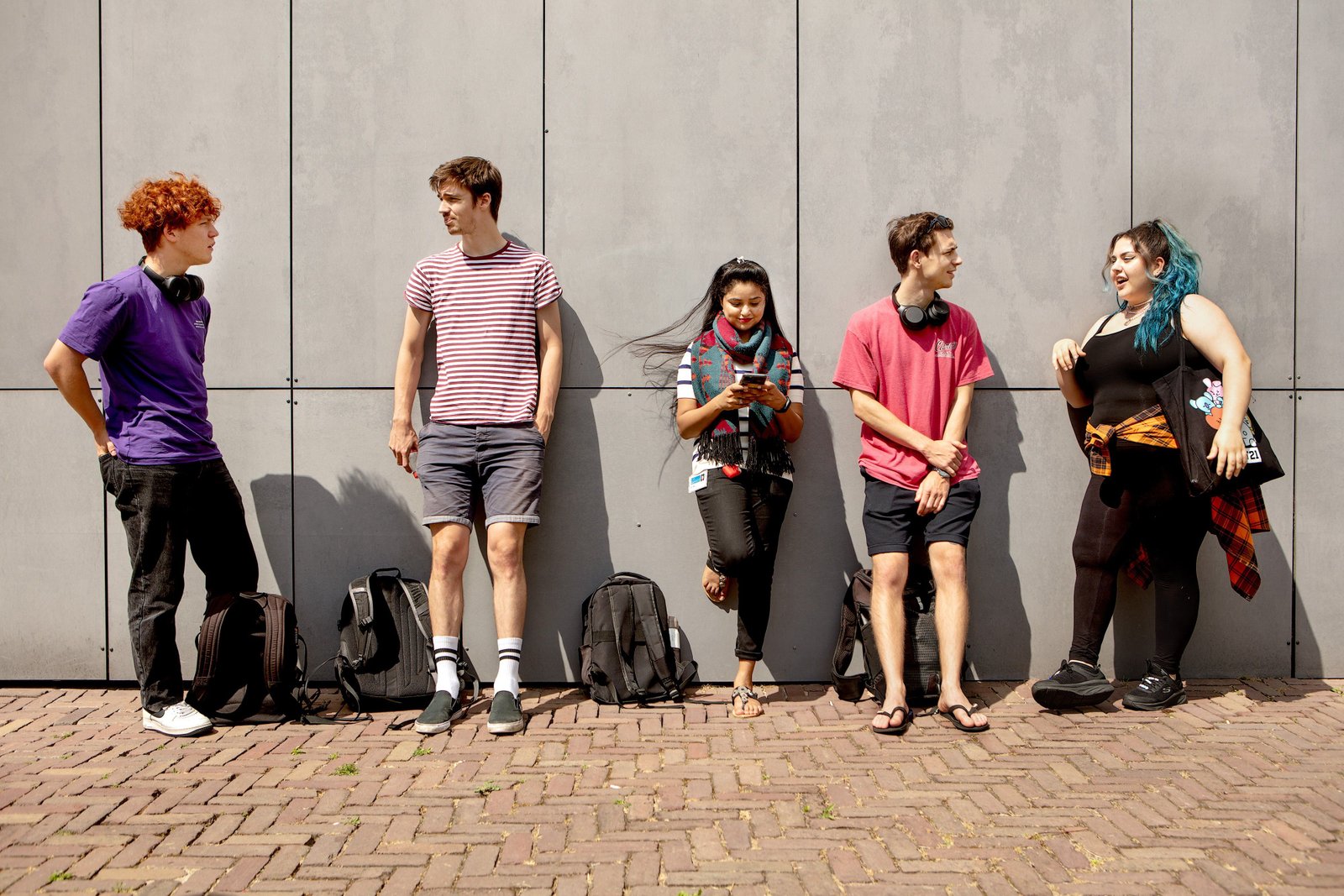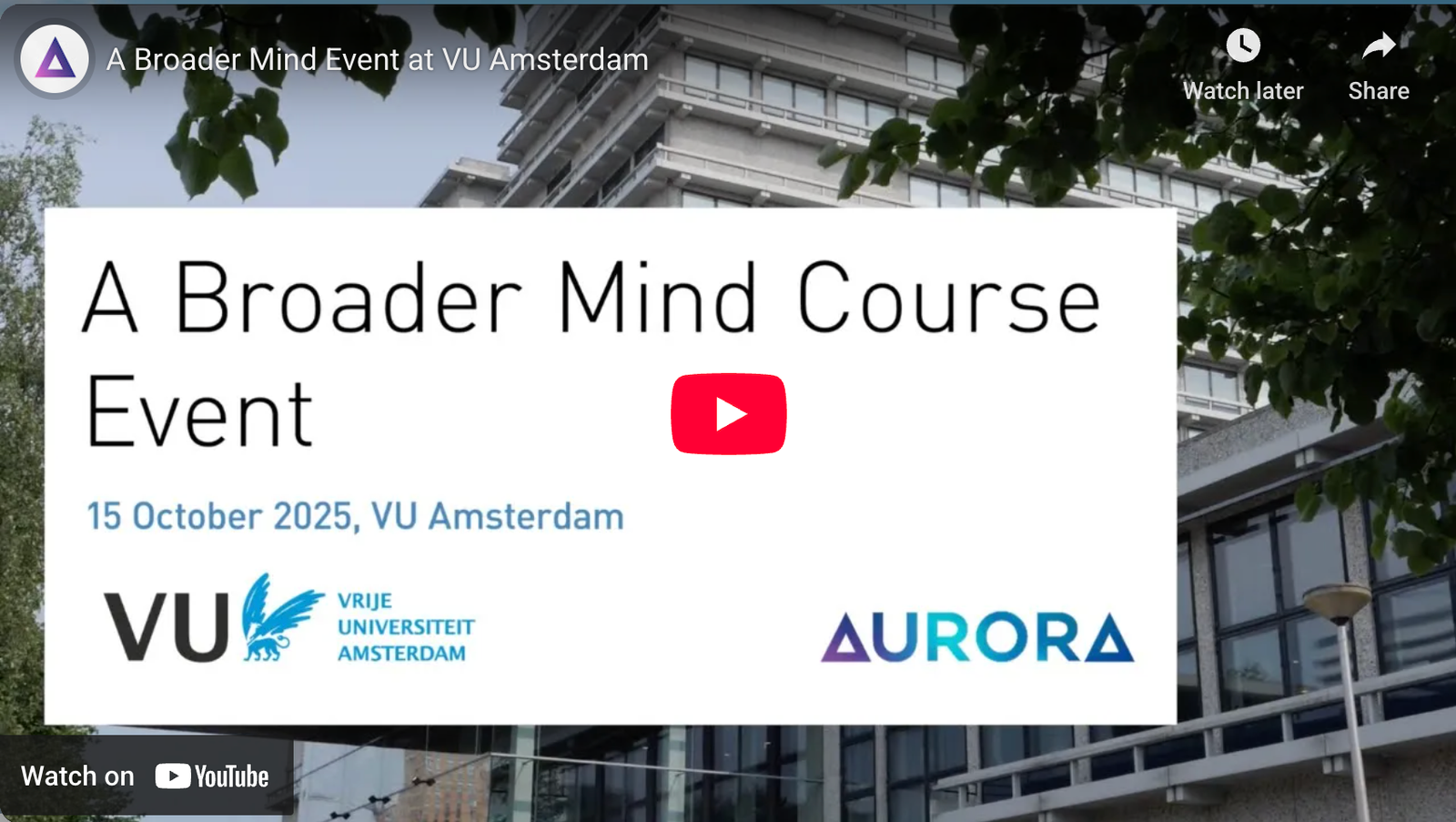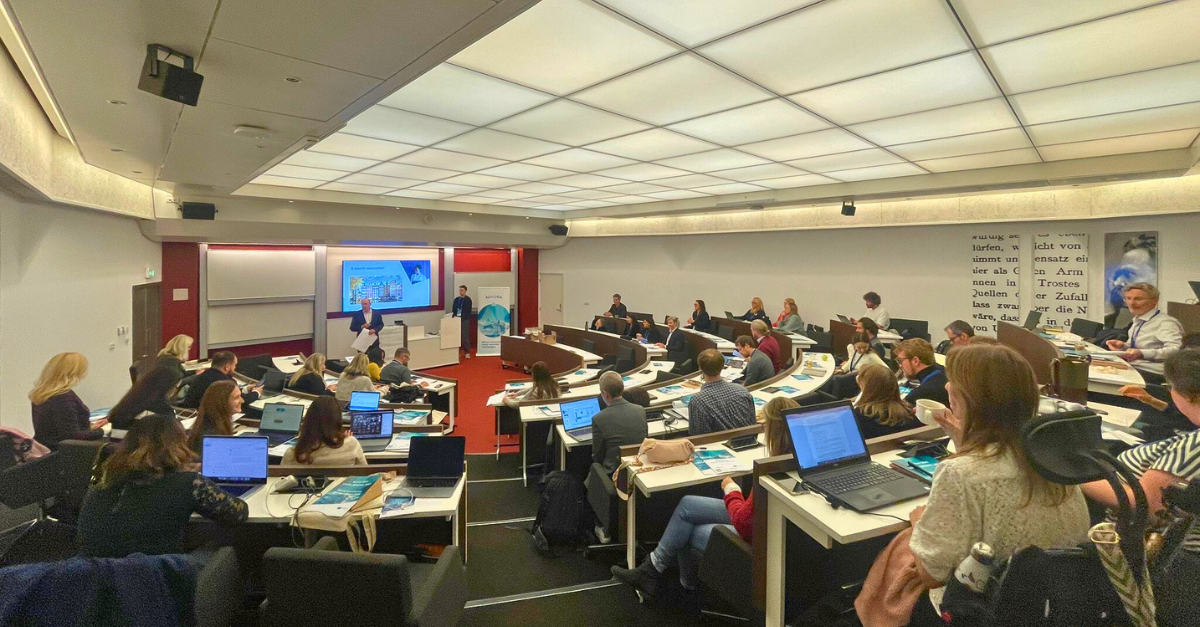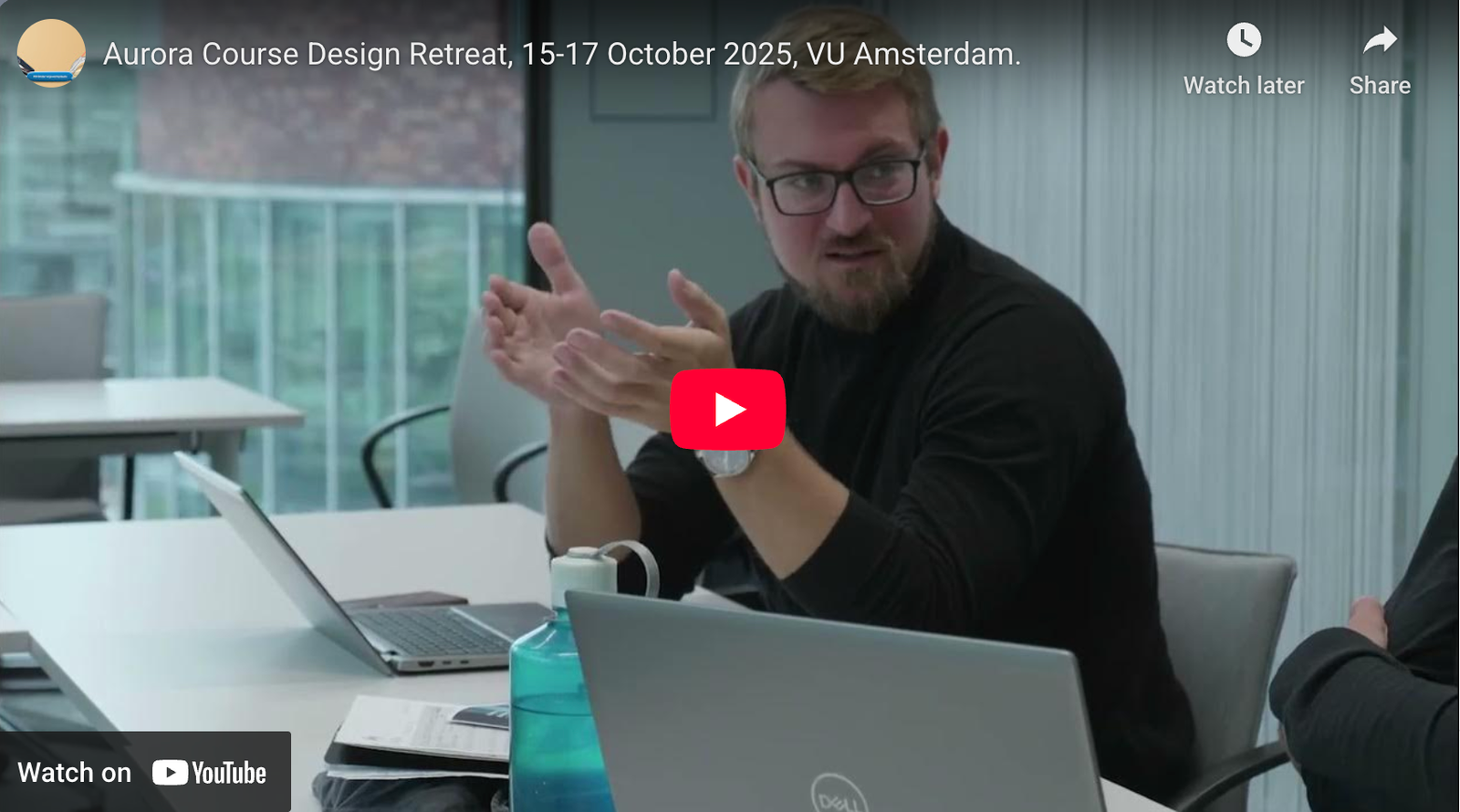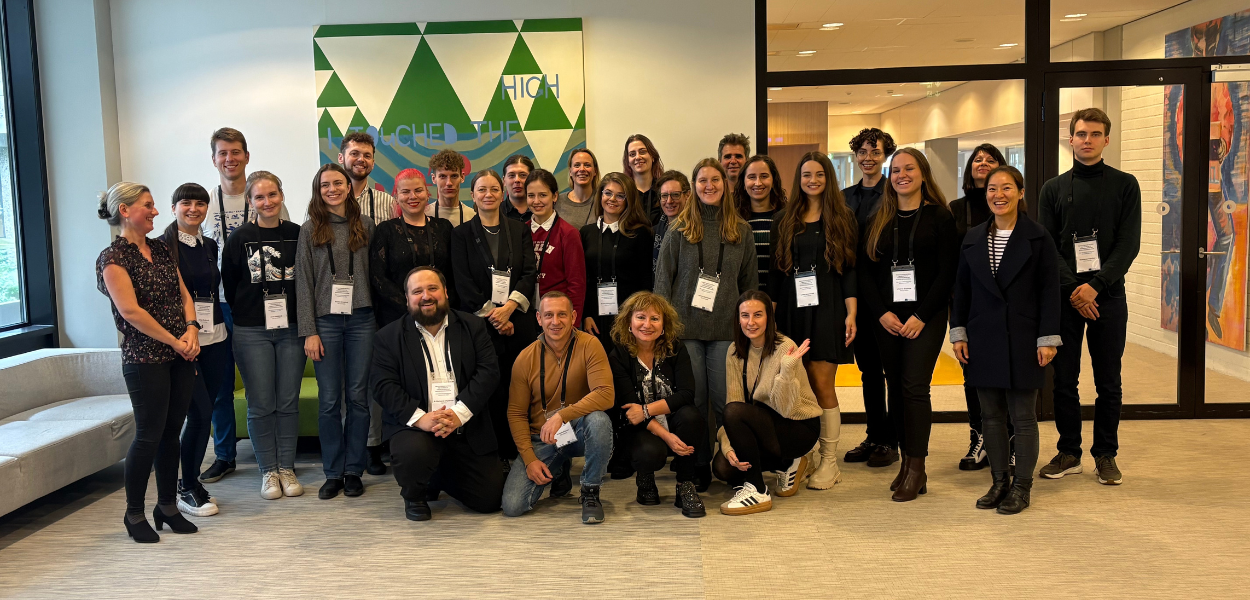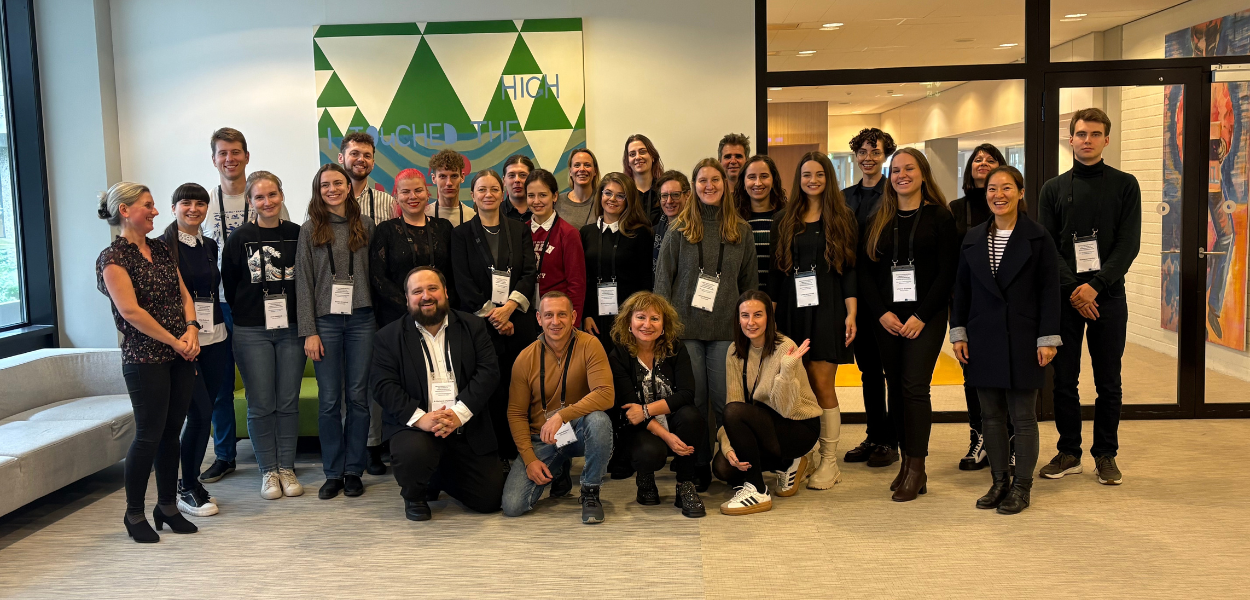Author: Sharon Feijen
Aurora Course Design Retreat Strengthens Collaboration and Innovation in Education
From 15 to 17 October, dozens of academics from across Europe gathered at Vrije Universiteit Amsterdam for the Aurora Course Design Retreat and Academic Matchmaking. Over three days, participants worked together to design new joint educational initiatives within the Aurora universities – from campus-based courses and micro-credentials to a Blended Intensive Programme (BIP).


Welcome by Jeroen Geurts, Rector Magnificus at Vrije Universiteit Amsterdam
The event was one of the initiatives in the broader Aurora 2030 programme, which is part of the European Universities Initiative launched by the European Commission aimed at achieving high-quality education with societal impact. It offered professors a unique opportunity to co-create, exchange ideas, and strengthen partnerships around key themes such as sustainability, digitalisation, health and well-being, culture, social entrepreneurship and innovation, and peace education.
Plenary Session: “Doing BIPs well!”
One of the highlights of the Course Design Retreat and Academic Matchmaking event was the plenary session “Doing BIPs well!”, presented by Marina Vives Cabré from Universitat Rovira i Virgili (URV). Leading the Aurora team working on Enabling Mobility and Exchange, she introduced the new Aurora BIP Handbook – a comprehensive guide for designing and implementing Blended Intensive Programmes.
In her presentation, Vives highlighted how BIPs offer unique opportunities for collaboration among Aurora universities. “Blended Intensive Programmes allow us to bring together students and staff from different countries in innovative short learning formats that reflect our shared values and address global challenges,” said Vives.
The handbook provides practical guidelines, tips, and a timeline for developing BIPs, helping institutions strengthen partnerships and enrich their teaching practices.
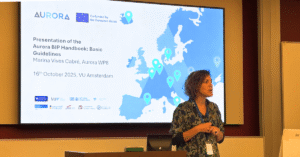
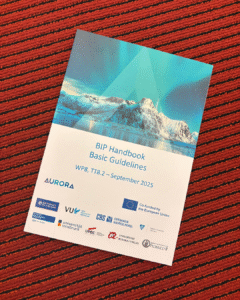
Marina Vives Cabré launches the Aurora BIP Handbook, a comprehensive guide for developing and organising Blended Intensive Programmes in Aurora universities
Design, Collaboration and Inspiration
During the Course Design Days, participants worked in thematic groups – such as Sustainability and Climate Change, Digital Society and Global Citizenship, and Peace Education – to develop potential inter- and transdisciplinary micro-credentials and joint courses.
There was also room for inspiration: workshops on teaching methods, presentations of successful Aurora course formats, and a contribution from VU Amsterdam’s own A Broader Mind Course, which exemplifies interdisciplinary learning in practice.




Building the Future of European Education Together
The event marked an important step in advancing the Aurora Educational Hubs and followed earlier gatherings in Tarragona and Paris. Participants left Amsterdam with new ideas, collaboration plans, and concrete course designs.
The Aurora Course Design Retreat and Academic Matchmaking event demonstrated how cross-border cooperation leads to innovative education – and how the Aurora community is jointly building a more connected, sustainable, and inclusive future for European higher education.
Aftermovie
Aurora PhD Training Programme Strengthens Research and Communication Skills Across Europe
A new joint PhD training programme developed by Vrije Universiteit Amsterdam and Palacký University Olomouc, as part of the Aurora 2030 Capacity Development Support Programme, is equipping researchers at Aurora associate partner universities in Central and Eastern Europe with advanced skills in research and science communication.
Hands-on Learning Across the Research Spectrum
Over several intensive sessions, participants engaged in a dynamic mix of hands-on workshops, expert-led seminars, and collaborative exercises. The training covered the full spectrum of research dissemination: from navigating academic publishing to communicating findings beyond university walls.
“It made me aware that science is not only about producing knowledge, but also about sharing it with people. The combination of learning by doing and networking made this workshop so impactful and helpful for my future career development,” said Mladen Micevski, PhD candidate at South-West University Neofit Rilski (Bulgaria).
A Comprehensive Curriculum
The programme addressed key areas of modern research practice:
- Open Science & AI in Research – Implementing open science practices and exploring the ethical use of AI.
- Mastering the Literature – Practical strategies for reviewing and synthesizing academic sources.
- From Paper to Publication – Crafting strong manuscript introductions and understanding editorial expectations.
- FAIR Data & Software – Applying FAIR principles, archiving data and code, and documenting research effectively.
- Science Communication & Visibility – Translating complex research for non-academic audiences, writing engaging blog posts, and interacting with media.
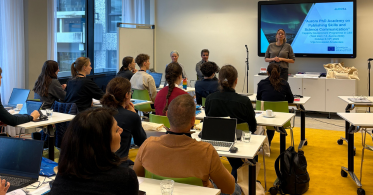
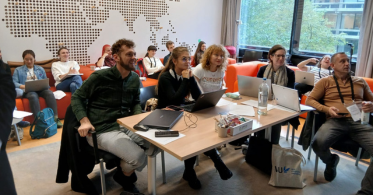
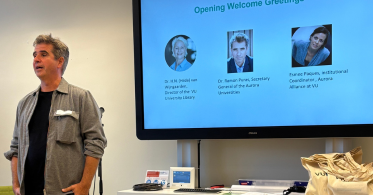
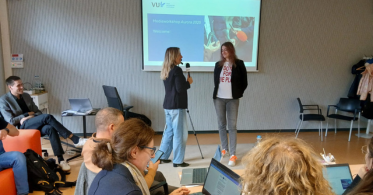
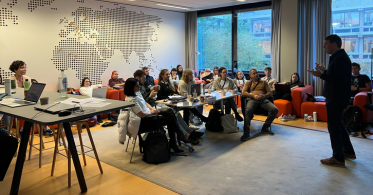
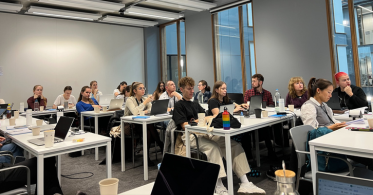
Building Connections and Peer Learning
Beyond skill development, the programme fostered a supportive peer-learning environment, connecting researchers across disciplines and institutions. Participants engaged with global experts, gaining insights into ethical publishing, open-access strategies, and storytelling in science.
“The workshop was an intensive and very engaging experience. The sessions combined theory with practical and hands-on insights on academic writing, open science, and science communication. What I appreciated most was that the workshop offered many useful hints on using digital tools for research and publication, which can be applied immediately in everyday academic work,” said Oleksandr Kryvtsov, PhD candidate at V.N. Karazin Kharkiv National University (Ukraine).
Tools to Enhance Research Impact
By the end of the programme, participants had a tailor-made toolkit to strengthen both the quality and reach of their research. The initiative not only enhanced publishing and communication skills but also advanced Aurora’s broader mission: promoting knowledge sharing, encouraging interdisciplinary collaboration, and bridging the gap between science and society.
For more details, the full programme can be found here.
